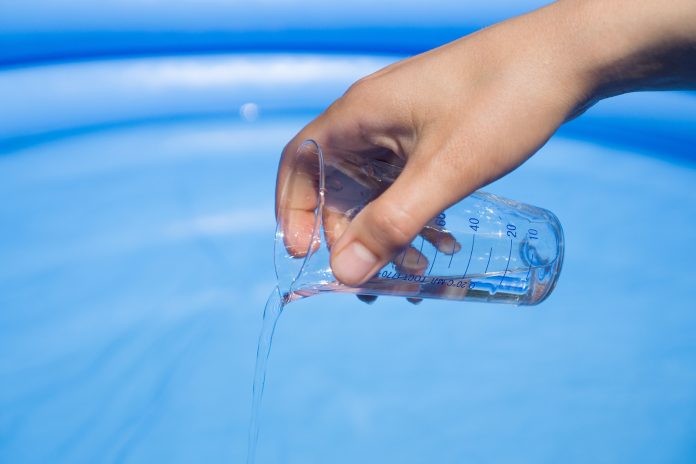A crystal-clear pool not only enhances the aesthetics of your backyard oasis but also ensures a safe and enjoyable swimming experience. Achieving and maintaining pristine water quality requires a fundamental understanding of pool chemicals. In this comprehensive guide, we’ll delve into the world of pool chemicals, exploring their types, functions, and the crucial role they play in keeping your swimming pool in top condition.
Understanding Pool Chemicals
1. Chlorine
Chlorine is the most common and essential pool chemical. It serves as a powerful disinfectant, effectively eliminating bacteria, algae, and other harmful microorganisms. Available in various forms such as tablets, liquid, and granules, chlorine plays a central role in maintaining water hygiene.
2. pH Balancers
The pH level of your pool water is crucial for its overall health. pH balancers, such as pH increasers and decreasers, help maintain the optimal pH range (7.2 to 7.8). Proper pH levels ensure the effectiveness of chlorine and prevent issues like eye irritation and equipment corrosion.
3. Algaecides
Algae can quickly turn a sparkling pool into a murky green mess. Algaecides are chemicals designed to prevent and control algae growth. Regular use can help keep your pool water clear and visually appealing.
4. Shock Treatment
Pool shock, or shock treatment, is a powerful dose of chlorine that rapidly raises chlorine levels to eliminate contaminants like bacteria and organic debris. It is particularly useful in cases of heavy pool usage, severe weather, or water that has turned cloudy.
5. Stabilizers
Sunlight can deplete chlorine levels in your pool water. Stabilizers, such as cyanuric acid, help protect chlorine from the sun’s ultraviolet (UV) rays, extending its effectiveness and reducing the frequency of chemical additions.
The Importance of Proper Pool Chemical Maintenance
Maintaining the right balance of pool chemicals is essential for several reasons:
1. Health and Safety
Properly sanitized water prevents the spread of waterborne illnesses and ensures a safe swimming environment for you and your guests.
2. Water Clarity
Clear water not only looks inviting but also allows for better visibility and a more enjoyable swimming experience.
3. Equipment Longevity
Balanced chemical levels prevent corrosion and scaling, extending the lifespan of your pool equipment, such as pumps, filters, and heaters.
4. Cost-Effective Maintenance
Regular chemical maintenance helps prevent costly issues, reducing the need for extensive repairs or replacements.
Tips for Effective Pool Chemical Management
- Regular Testing: Test your pool water regularly using a reliable test kit to ensure the chemical balance is within the recommended range.
- Follow Manufacturer Guidelines: Adhere to the recommended dosage and application guidelines provided by the manufacturers of pool chemicals.
- Proactive Maintenance: Address chemical imbalances promptly to prevent water quality issues from escalating.
- Consult Professionals: If in doubt, seek advice from pool maintenance professionals who can provide tailored guidance based on your specific pool needs.
Conclusion
A well-maintained pool is a source of joy and relaxation. Understanding the role of pool chemicals and implementing a consistent maintenance routine are crucial steps toward achieving and enjoying a pristine swimming environment. By investing time and attention into proper pool chemical management, you’ll ensure your pool remains a refreshing haven for family and friends to enjoy for years to come.








